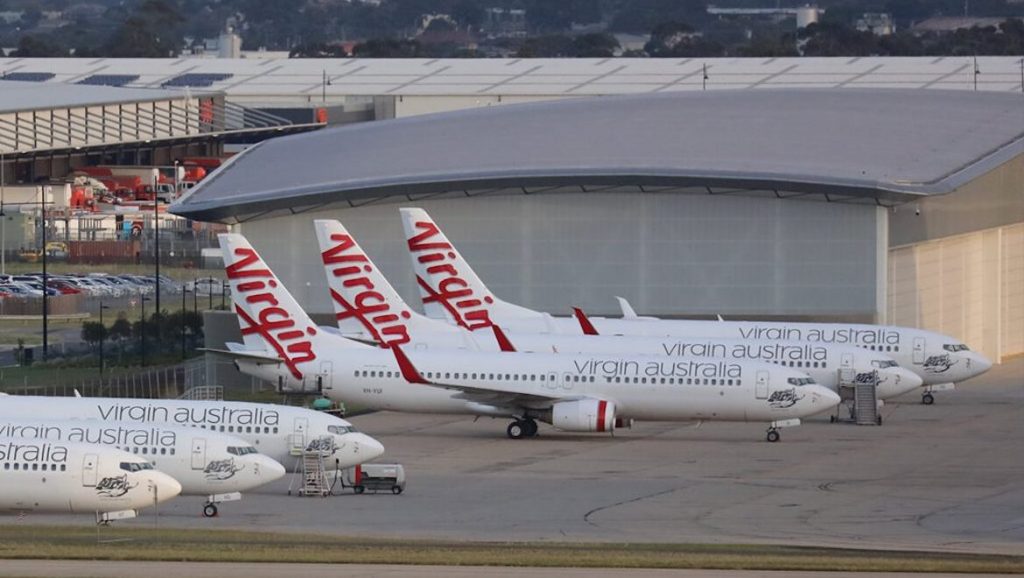
Virgin Australia staff will soon see two cash bonuses, and some an increase in base wages, in an effort to recognise their efforts and the “ongoing challenges” of the COVID pandemic.
Each staff member will be paid a $500 cash bonus, or 0.5 per cent of their base salary – whichever is higher – in July 2022, in light of the “extraordinarily difficult circumstances of the last 12-months and the challenges yet ahead”.
CEO Jayne Hrdlicka revealed the bonuses in an email to staff, which also revealed that Virgin would bring forward payments for half of its 6 per cent profit share scheme to December 2022. The second half will be paid out in September 2023, based on the airline’s 2023 financial performance.
Virgin has also pledged to fund a 0.5 per cent increase in employee’s superannuation, as per the 2022-23 federal budget.
Further, cabin crew will see negotiated wage increases come into effect from July – three months ahead of schedule, and crew on lower pay grades see pay rises in line with their higher-paid counterparts.
The TWU welcomed the news, and said crew will also benefit from improved rostering conditions due to recently-negotiated fatigue management changes.
The union said the bonuses are particularly welcomed in light of current cost-of-living pressures, as inflation continues to increase.
“Virgin workers have stood firm over the last two years to hold the new owners to account, including obtaining long-term commitments to the airline and its people,” said TWU national secretary Michael Kaine.
“Last year, workers won a 6 per cent bonus profit share scheme, and we welcome Virgin’s proactive approach to bring part of this payment forward while inflation is through the roof.
“The decision to advance pay increases and reward workers with an additional payment is a good step forward. While there is still work to be done to improve pay and conditions for aviation workers, it is a testament to Virgin that those conversations happen respectfully at the table with workers, rather than callous executive decisions that slash pay and attack jobs.”
The TWU continues to push for a “Safe and Secure Skies Commission” to help protect the industry during “black swan events” such as global health crises, natural disasters, or global conflict.
“The cost-of-living pressure on aviation workers is colossal following the industry’s decimation for two years. Pandemics, natural disasters, security incidents and international unrest are unfortunate but not uncommon events,” Kaine said.
“We need an aviation industry that can weather the storm – that requires an industry body equipped to iron out its vulnerabilities.”
In the 18 months since exiting voluntary administration, Virgin has continued to show signs of strength.
In the last month alone, the airline has launched new codeshare partnerships with United Airlines and Qatar Airways, and announced an order for four additional Boeing 737 MAX jets, taking its total 737 fleet figure to 88 – well above its post-pandemic prediction of 58 aircraft.
Earlier, in January, Virgin was successful in its ongoing domestic market share battle against Qantas, and carried more passengers that rivals Qantas, Jetstar and Rex.
According to a report by the ACCC, Virgin claimed 34 per cent of the passenger market in January, up from 33 per cent in October 2021.
The figure surpassed Virgin’s long-held target since exiting administration in November 2020 to achieve and hold onto 33 per cent of domestic market share. Virgin boasted just 22 per cent share in November 2020.
Qantas and Jetstar each claimed 31 per cent of the month’s domestic passenger market share, sending the Qantas Group’s collective share to just 62 per cent, well below the Group’s target of 70 per cent.
In December, Virgin surprisingly reported a $3.7 billion after-tax profit for the year ending 30 June 2021, the airline’s first in nearly a decade, after the airline clawed its way out of administration.
The year’s profit came largely off the back of the $4.4 billion in creditors’ claims that were extinguished by its administrators, following the sale of the airline to US private equity firm Bain Capital in November 2020, and the cost-savings of axing budget subsidiary Tiger.
Overall, Virgin saw an underlying before-tax loss of $76.8 million – marking perhaps a better indicator of Virgin’s financial performance in the year to 30 June.
















marcus
says:Just curious, are these bonuses taxed?
Andrew
says:A good idea when they pay their staff peanuts. Cabin crew are leaving in droves. The bonus is an attempt to dangle the carrot as staff try their luck at the main competitor (most are failing interviews). Virgin staff are fleeing a sinking ship it seems with nowhere to go!